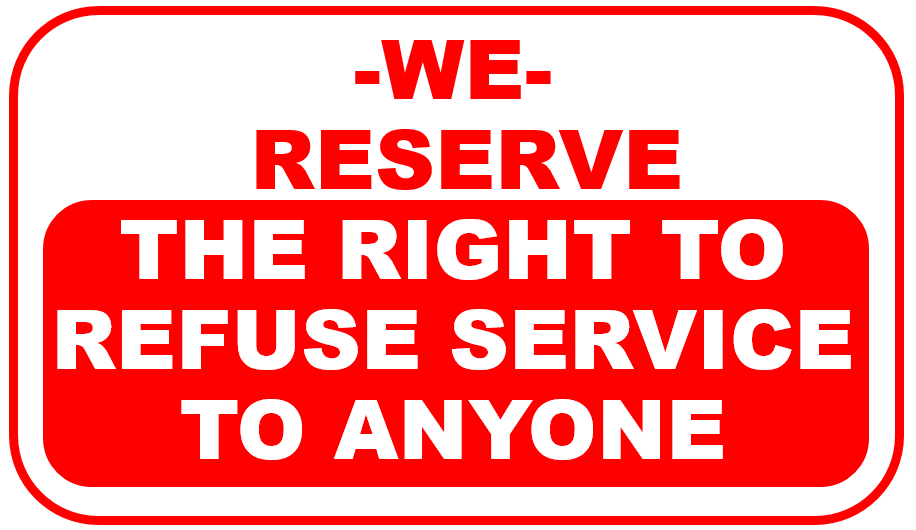
When you want somebody to do something for you, you’re COUNTING on their self-interest, whether you know it, or think so, or not.
Just the other day, a man approached me and acted like he was entitled to a session with me, right away. He became very irate when I told him I could not give him an appointment right away. It was evidently not an emergency, because there was no interest in seeing someone at a hospital program nearby. He wanted what he wanted, and now. I know a lot of people are like this. But seriously? You’re entitled to my time, my professional skills, my energy, just because you say so? What about everyone else? If you’re entitled, aren’t they entitled to the same? Why should you be first in line, when nobody else is entitled to the same? And if they are also entitled, how can everyone be first in line at the same time?
We wonder why the world is such a mess. But our society is filled with people like this. Even if they’re not the majority, the majority who are reasonable let people like this walk, run or trample all over us. It happens every single day, in big ways and small ways.
Not in my world. Nor should it, in yours.
A lot of human relationships are bad or mediocre. Marriages routinely end in divorce, and just as often in chronic dissatisfaction. People treat each other poorly. Why? One reason is the idea that we all owe each other something. Not because we promised or freely agreed to something. We owe them, simply for being alive.
It’s easy to say, “We all owe each other something. We should all love our fellow man, give back and take care of one another.” Who wouldn’t applaud that idea? Or at least wish to be seen as applauding it, right? (I wouldn’t; but I know most people would.)
On the surface, it seems reasonable—even necessary—to assume we all owe mankind something. All for one, and one for all. But nobody ever stops to think about how dishonest and disingenuous this is. And how impossible it is. And how utterly hypocritical, since nobody can or will practice it, short of martyrdom or suicide (which some of us will label heroic).
How can you love everyone in general? How can you love all mankind the same as you love yourself, or particular individuals you happen to cherish? Why should you pretend you do? It’s heresy to even consider these questions, much less answer them rationally and honestly.
But when you take that idea to heart, you start to assume that everyone owes you. It’s only fair, after all. If you owe everyone, then they owe you back. Correct? It logically follows. And it psychologically follows, too. If I owe everyone, then everyone else owes me. It’s only fair. [Insert Bernie Sanders slogan, or Karl Marx slogan, here.]
We’re not supposed to discriminate. Heaven forbid. I don’t just mean that as a legal matter. I mean it psychologically, as well. We’re supposed to love everybody the same. We don’t; but we’re supposed to pretend that we do. And to make sure others think so. There’s the hypocrisy.
In the privacy and contemplation of counseling sessions, people frequently say to me, “I don’t mean to be unkind or mean, but…” They apologize for their feelings — even to a therapist — despite the fact their feelings are often grounded in reality and fact. I almost always interrupt at this point to say, “Just be honest. Always be honest with yourself. Put the truth first.”
I’m trying to do my part to preserve the minds and psyches of individuals against the onslaught of unearned guilt created by the false idea that we’re all supposed to love everybody. Because those counting on you to believe that you owe them stand ever-vigilant, waiting to file a claim and collect on your storehouse of guilt.
The truth: You’re not obliged to love anyone. Not even yourself. Of course, if you want a satisfactory life, it’s necessary to love and value yourself. If you don’t, there’s no reason for living. Why even try to survive if you don’t love yourself? And as an extension of loving yourself, you will love—even cherish—certain significant others you choose to bring into your life, in various contexts. If they earn it. It makes rational sense to be open to such emotions, because the experience of loving/valuing and being loved/valued by another can be immensely rewarding, despite the risk of pain or loss involved.
But we’ve got to get past this idea that we’re all supposed to love one another the same. I would call it a childish fantasy. But such delusions are not the fault of children. Children, even in their immaturity and ignorance, don’t expect everyone to love everyone the same. Children, in fact, are often the most honest ones. Children are taught these absurd fantasies, and often carry them into adulthood; but adults are the ones who perpetuate and indoctrinate the young with these falsehoods.
Love yourself. And love others—when and if they earn it.
Never treat your love as an entitlement anyone might deserve. And never treat another’s love of you as something you deserve as some kind of birthright.
None of us are entitled to anything, other than the right to be left alone and figure out what to do, whom to love, and how to live. As I’ve said before: Grow up, America.
Follow Dr. Hurd on Facebook. Search under “Michael Hurd” (Rehoboth Beach DE). Get up-to-the-minute postings, recommended articles and links, and engage in back-and-forth discussion with Dr. Hurd on topics of interest. Also follow Dr. Hurd on Twitter at @MichaelJHurd1
Dr. Hurd is now a Newsmax Insider! Check out his new column here.
